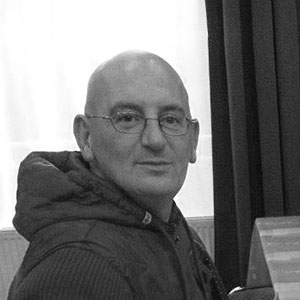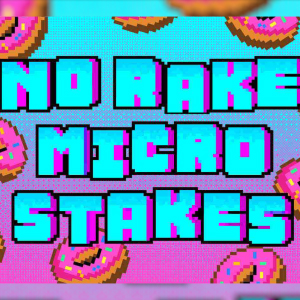Calling the Clock | Poker Etiquette
9 years ago

07 Dec
Before we get into the meat-and-bones of ‘calling the clock’ on an opponent, let’s take a look at a recent incident which your author was involved in….
…a couple of months ago, about 7 hours into a long cash-game session at my local casino in Edinburgh, I got involved in a difficult hand. It was on the turn, and I had an open-ended straight draw as well as the nut flush draw.
Me: A♥ 10♥
Board: (8♣ 9♥ J♣) K♥
The player to my left went all-in, and after half a minute or so the only other player also shoved.
What to do?
Player 1 (let’s call him Jimmy the Scotsman) hadn’t shown any obviously weak or rash play in the several hours we’d been together at the table, and player 2 (let’s call him Jaime the Spaniard) hadn’t been at the table long enough for me to know his play at all.
So, although I generally play quite quickly, this is the time for a deeper think. The pot is sitting at about £450 and I have to call off my last £150 to see the river. If I don’t hit, I’m busto – player 1 has at least something, and probably a very reasonable something.
About 30 seconds or so into my thinking, player 2 called the clock on me! I was flabbergasted. It hadn’t even been a minute, it was a big decision and we’d been playing for some 7 hours with nobody calling a clock on anybody else, even with ‘tanks’ of 5 minutes on occasion.
The floor manager came over, told me (rather rudely) I had 1 minute to make a decision and then my hand would be folded.
Wtf? I mean, seriously, I needed to have a proper think here about numbers and possibilities – but I was being forced to act quicker than some guy who was chatting up the waitress and had forgotten it was his turn to play!
To make it worse, the idiot who called the clock kept talking to me during my 1 minute – and when I complained about this, the manager simply said “25 seconds”!
Well, I was enraged – and decided to call just to get away from the game and hopefully take Jaime’s money somehow – only to find player 1 (Jimmy) had a made straight, Jaime had basically the same hand as me and the river bricked. At least it was Jimmy who won the money, but I was seriously pissed at player 2 (and the casino’s floor manager).
Anyway, this rather lengthy introduction came to mind because I viewed this year’s WSOP final stages yesterday, and saw Justin Schwartz act horribly by calling a clock on Federico Butteroni.
Schwartz, who was way out of line on several occasions, called the clock less than 1 minute into a river decision the young Italian was facing – a decision made harder because of the tournament position (day 7 of the WSOP Main Event guys!) and the river card Ace which had just arrived (Butteroni’s JJ before then being an overpair to the board).
With Butteroni facing the same nervous countdown as I faced above, the other players were moved to comment on the speed of Schwartz’s clock call. 50 seconds? At this stage of the biggest tournament of every player’s dream career? Hmmmm.
:
So what would be acceptable?
How long should you wait before calling time on somebody? In my situation, I would think 3 minutes at least. It was a long game, the Spanish player was quite new to the table and should have waited for someone else who’d been there longer to call the clock on me.
The floor manager should have taken some other factors into account before starting the clock – and really ought to have told the guy to shut the hell up too!
In the Schwartz-Butteroni situation – described in the YouTube video of it as ‘Jerk Move by an Annoying Poker Player at WSOP 2015 Main Event’ – the other players at the table had their own opinions.
Max Steinberg, the first to pull Schwartz up on his terrible table manners on a couple of occasions, thought that:
I think it was poor form…that’s my opinion.”
Schwartz’s response was:
I can’t be stared at for 5 minutes…make a decision!” The obviously nervous (and by all accounts lacking in most poker etiquette and social skills) Schwartz continued, “I can’t handle it, I’m sorry, I can’t handle it!”
“2 minutes, like, 4 days ago…” was Steinberg’s comment, meaning that extra latitude should be given since they were now deep in the tournament.
“I usually wait 8 minutes” said Daniel Negreanu. Daniel has previously gone on record about ‘clock-calling’, stating:
It's only okay against repeat offenders that are routinely taking too much time. Even then, a clock shouldn't be called unless a reasonable amount of time has passed. The bigger the pot, the more time that should be allowed."
This viewpoint seems to be the prevailing attitude of most pros, although those who have newly arrived in a casino from years of online play might find the time allowed extremely excessive.
What could be gained by calling the clock?
Obviously, the main thing gained is forcing the opponent to play before he has decided what to do. Putting somebody under time pressure is more likely to lead to them making a bad decision.
In my case, I got flustered, angry and made a very questionable choice. In Chad Holloway’s 2 articles covering the subject, he explains:
Clearly some players need time to make a tough decision. This could be due to a number of reasons

In Butteroni’s, he made a reasonable decision – but given extra time to think he might have, for example, been able to recall Schwartz doing something similar before – or since Schwartz said he was “worried I was going to start shaking” – he might have got a decent tell from the guy.
Another, more reasonable, effect it might have is to make the player aware that they are taking far too long in general to make decisions. As Chad Holloway also says:
If a player is habitually taking too much time, calling a clock can be useful. If the player is taking too much time inadvertently, calling a clock is a pleasant way of informing him that he should hurry things up. On the flip side, if a player is intentionally stalling, calling a clock is a great way to keep the game on track.”
So it’s not all one way traffic, there are arguments for both sides. And what’s good for the goose is also good for the gander – that is, if you call the clock too early on someone, what’s to stop them doing the same thing to you?
I haven’t yet had a chance against my own annoying opponent in Edinburgh – but at least Butteroni had the satisfaction of seeing Schwartz tumble out of the Main Event when he walked into set-over-set on the flop against eventual bracelet winner Joe McKeehen !






Comments
You need to be logged in to post a new comment